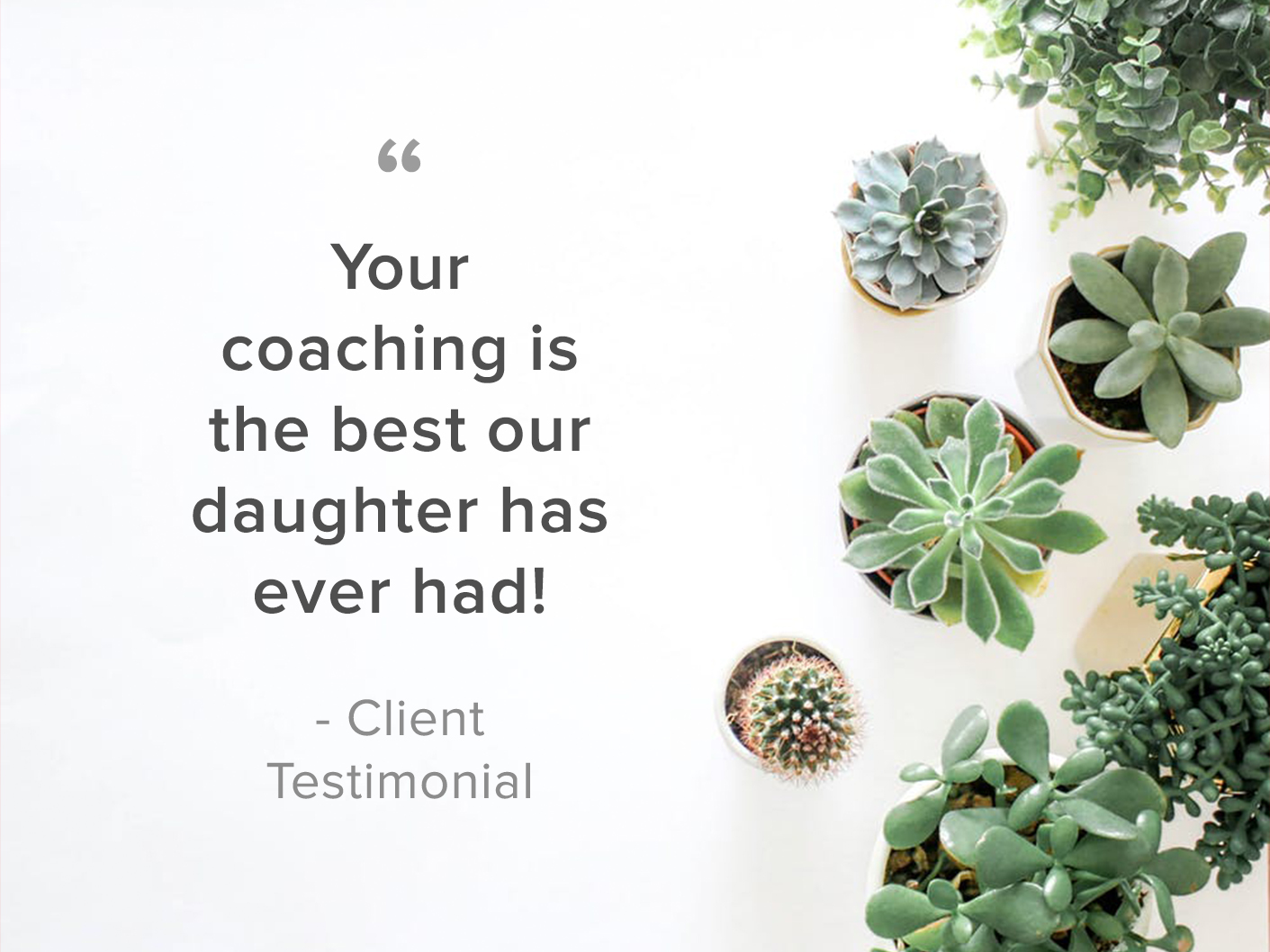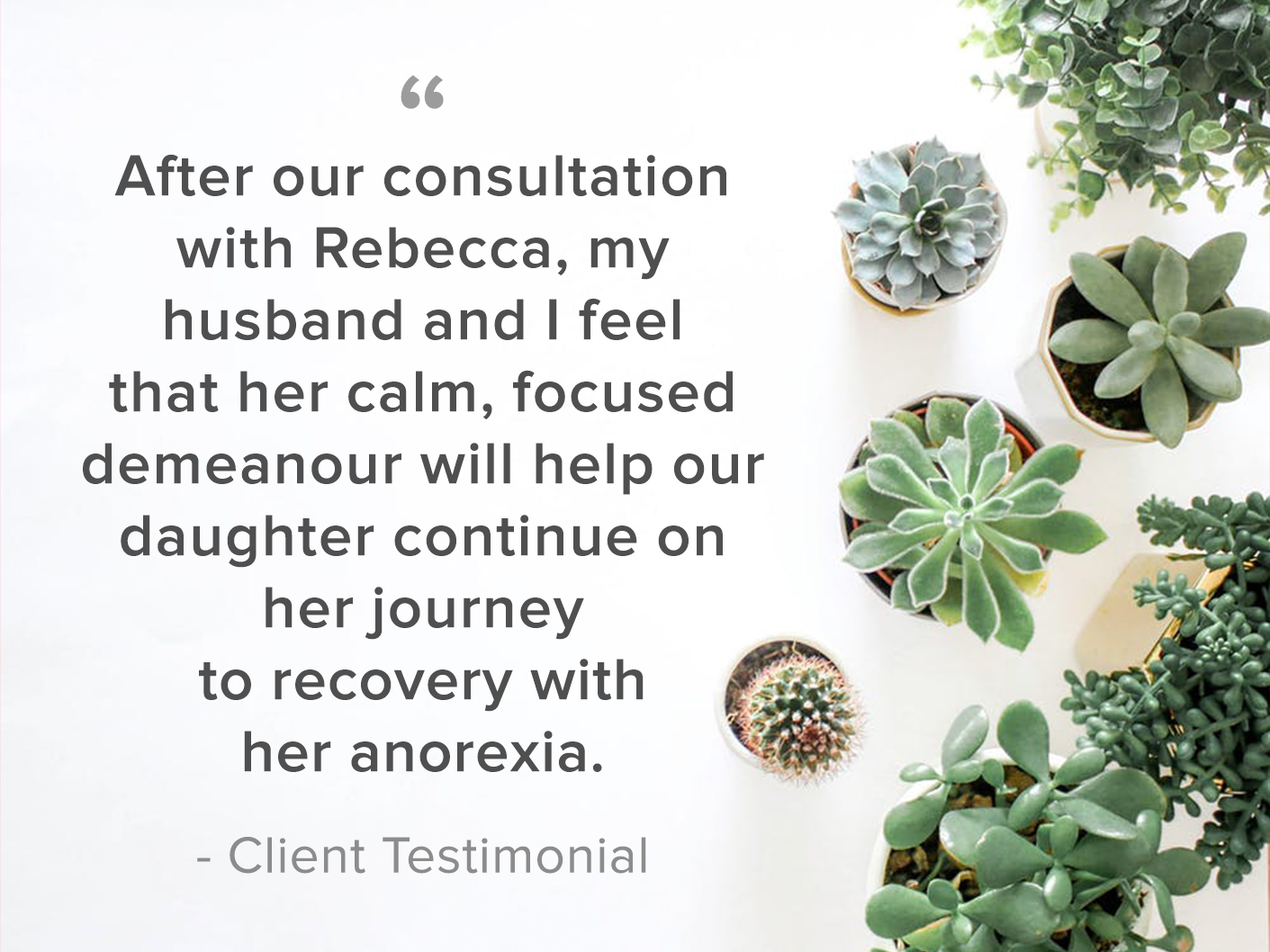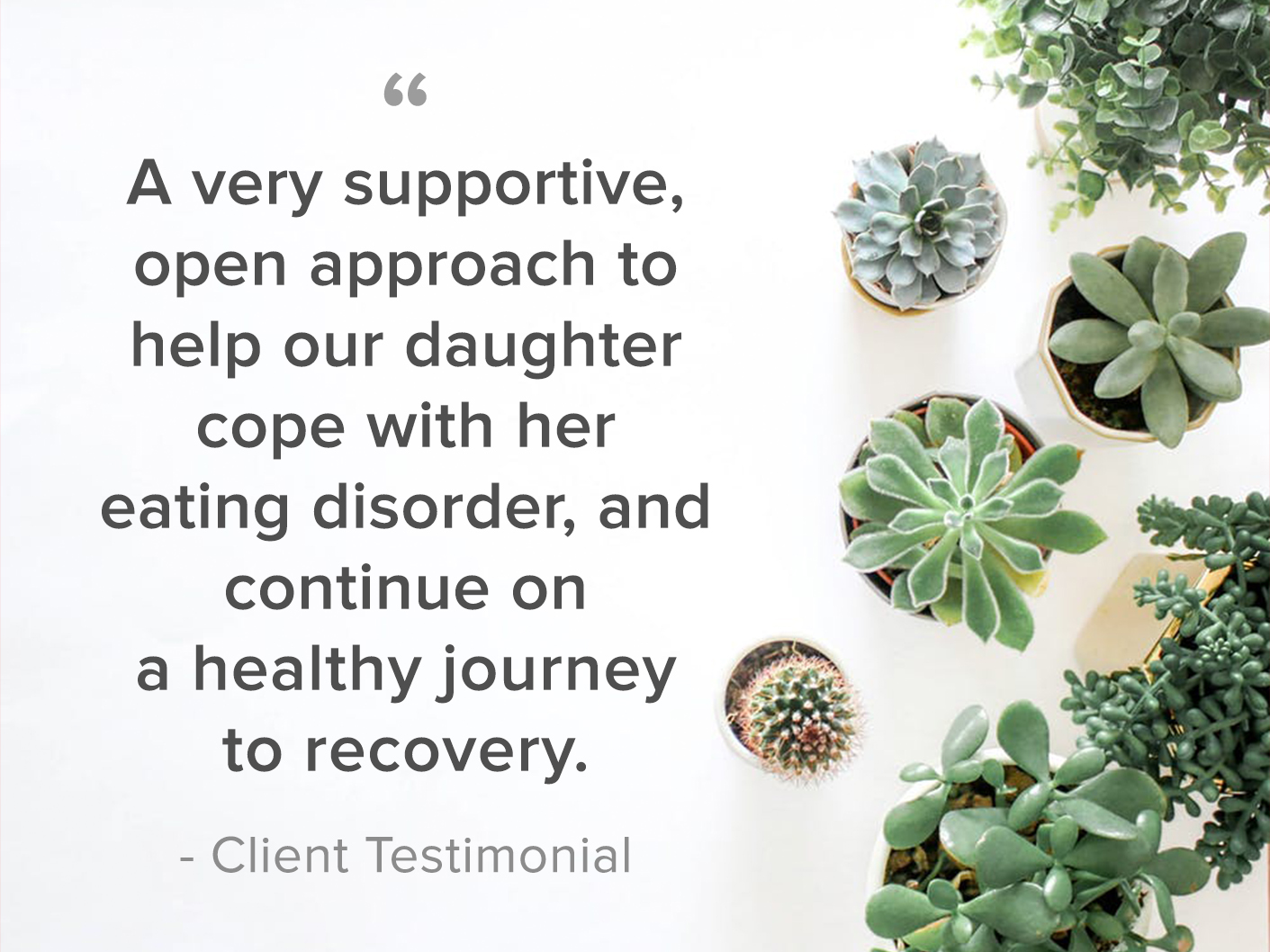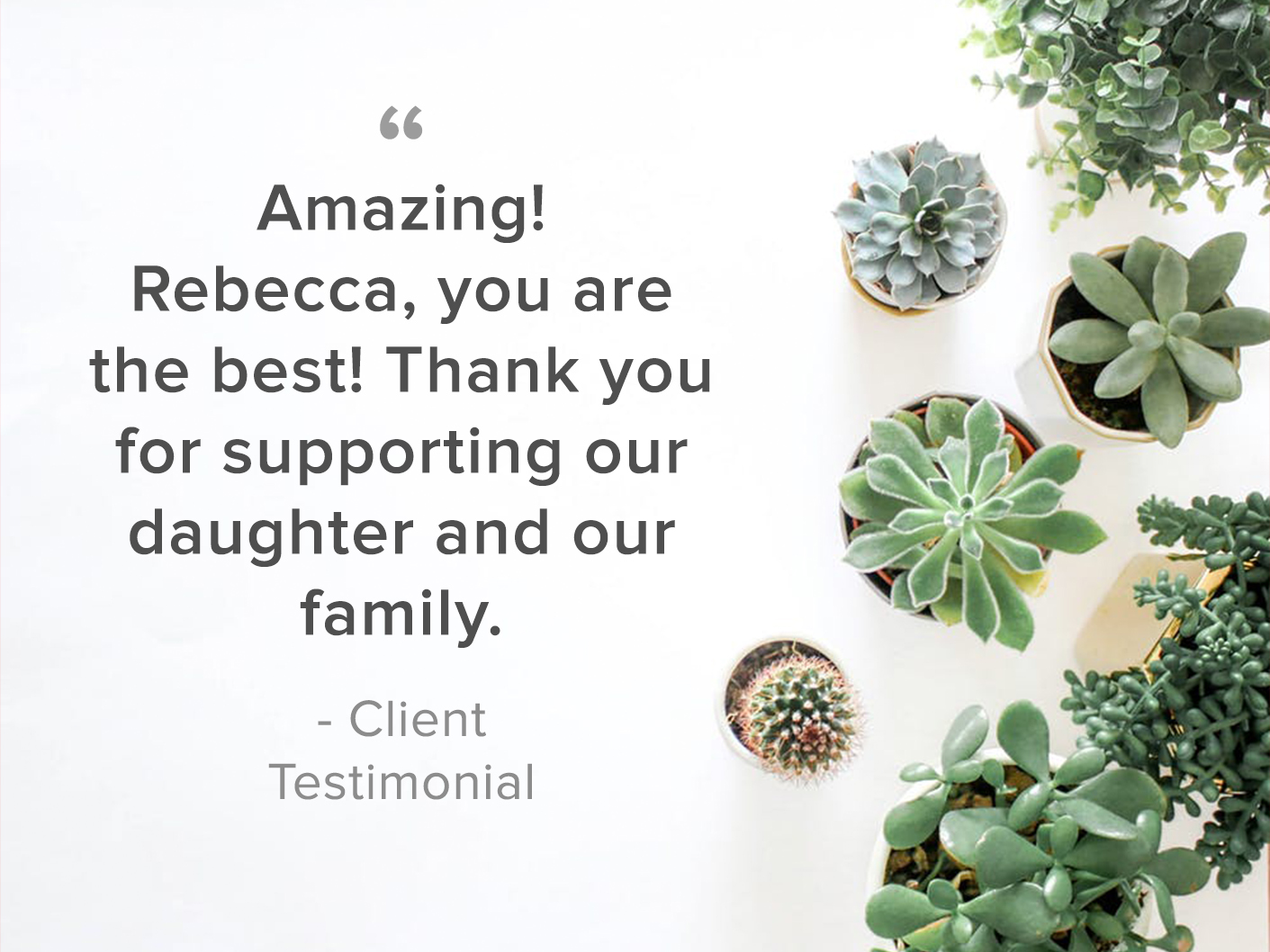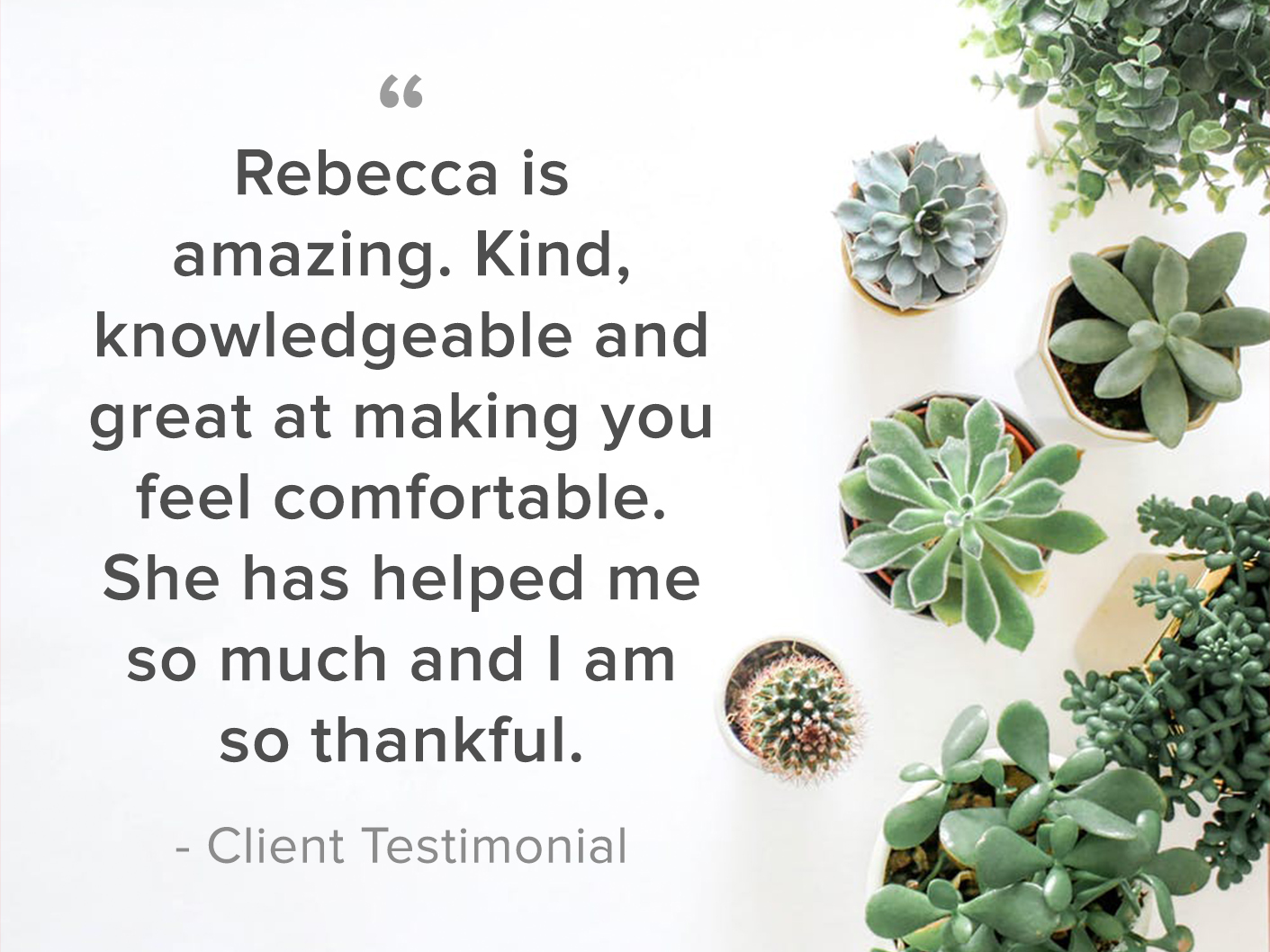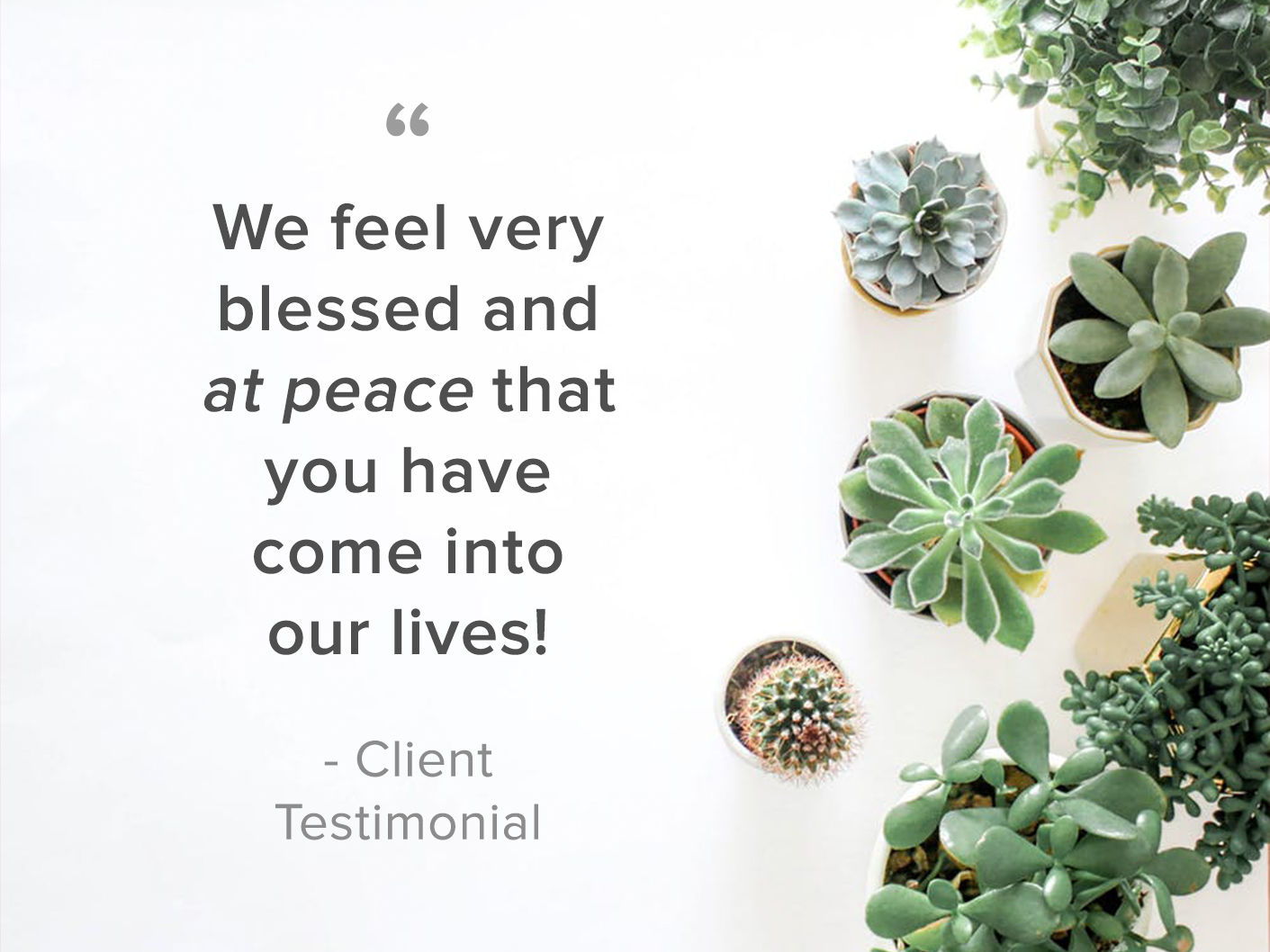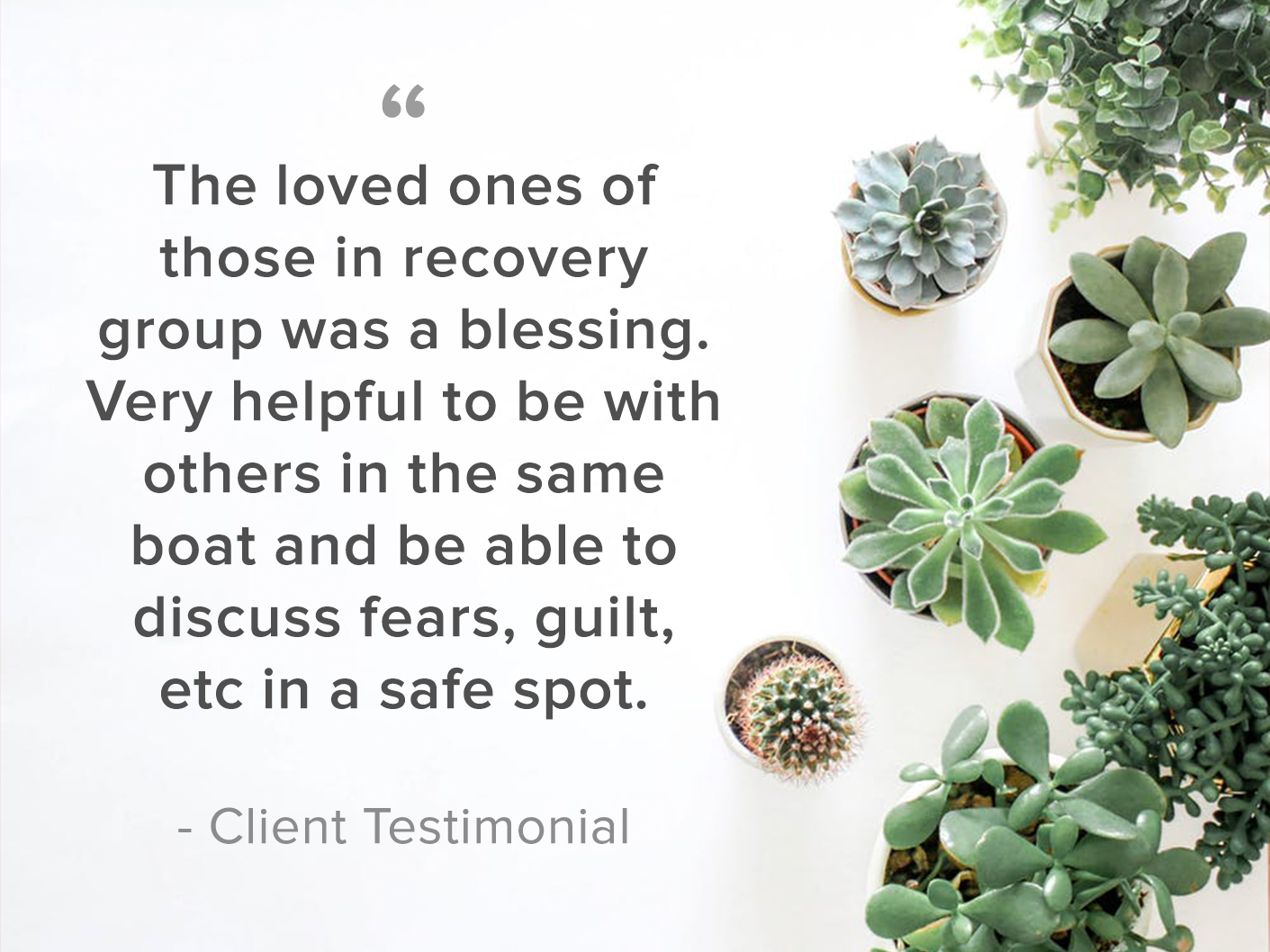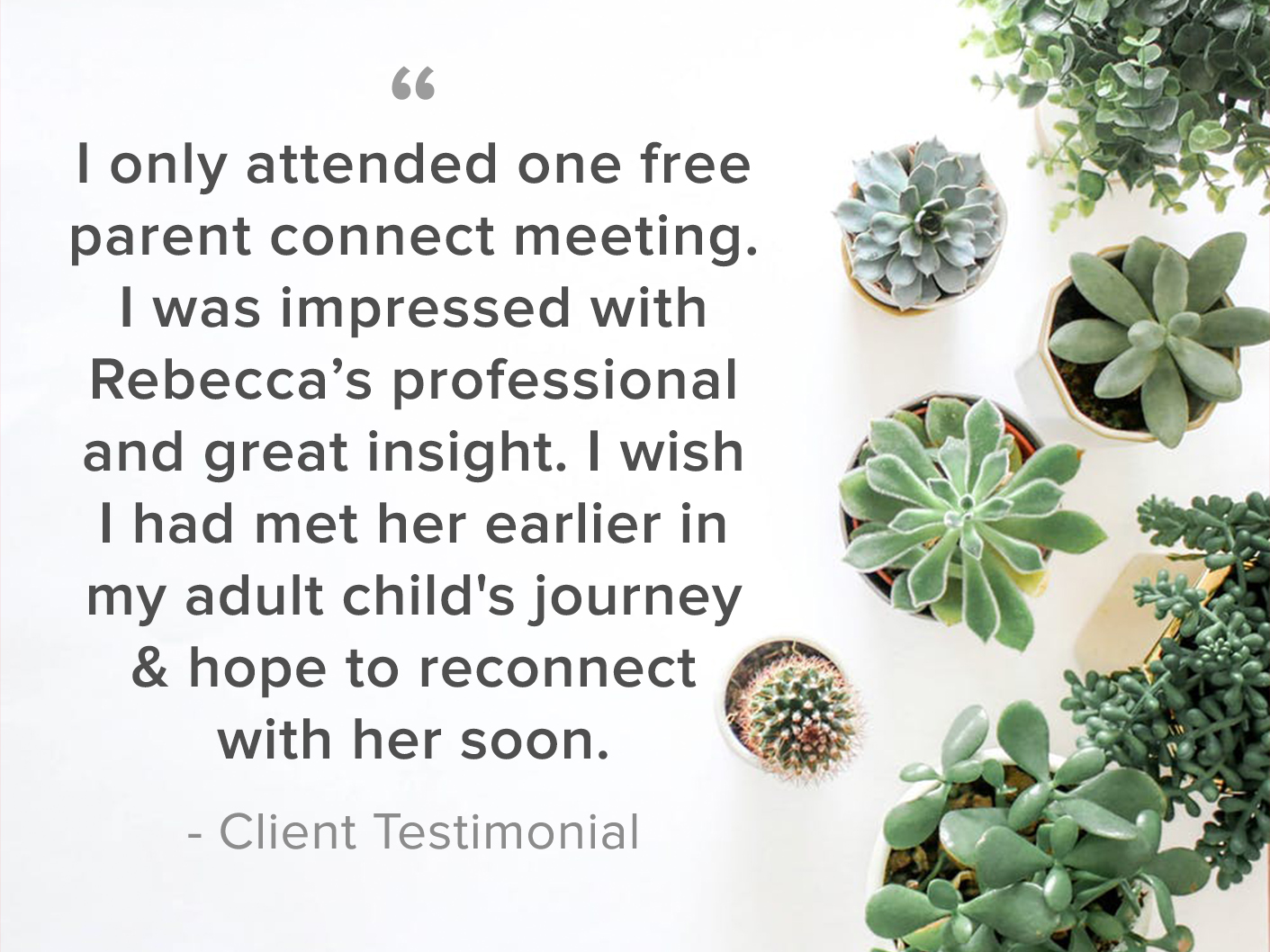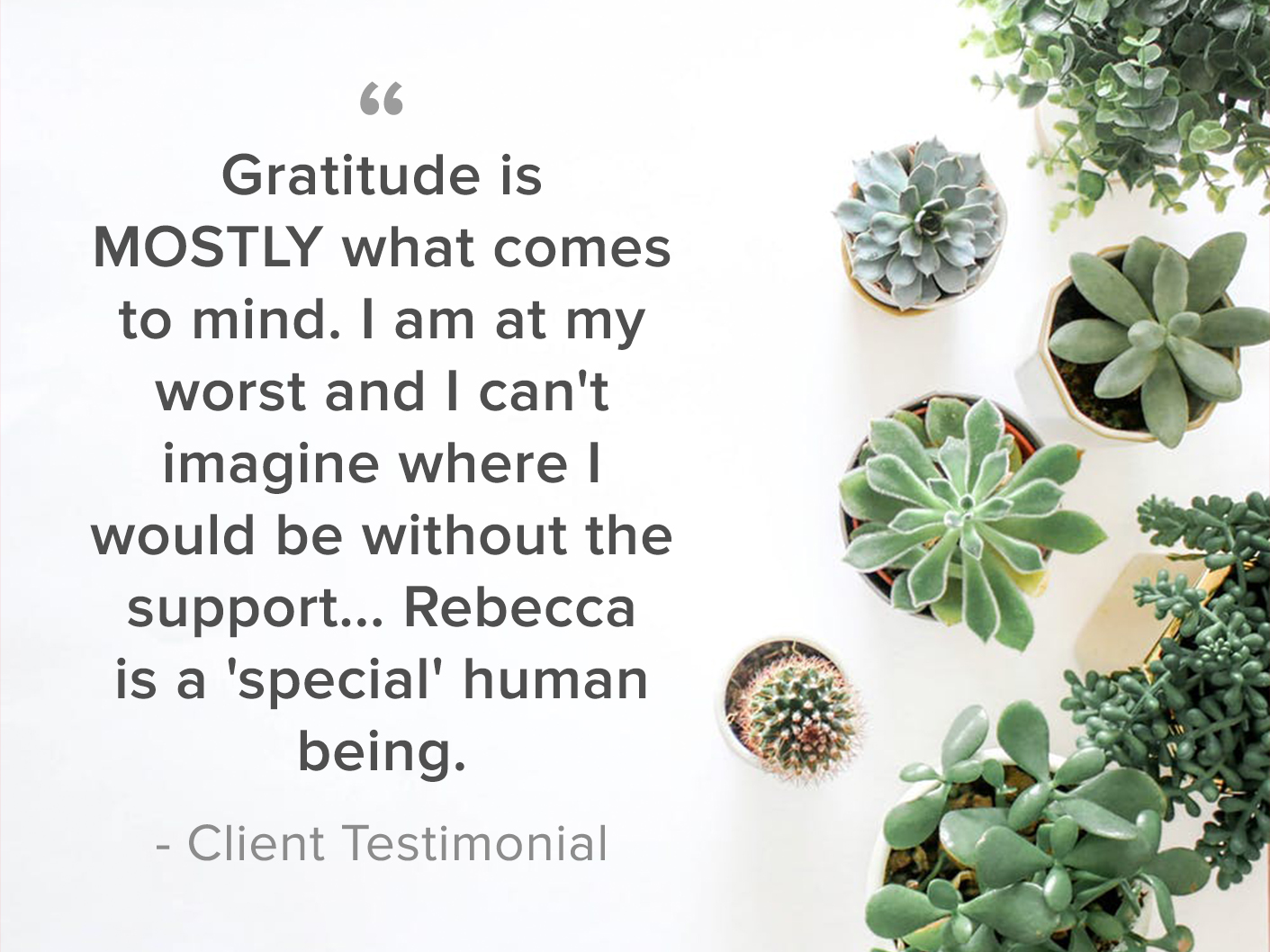In healing we don’t become normal, we become extraordinary.
Disordered eating is about so much more than our relationship with food. If left unchecked, it has the ability to rob us of a healthy relationship with food, self-esteem, resiliency, interpersonal relationships, personal and professional development, and more.
Recovery is about learning to thrive in life; repairing our relationship with food, accepting ourselves, and creating a life that is purposeful. This journey will empower you to feel confident in yourself, learn new techniques to manage difficult thoughts and feelings in ways that don't create harm.
Recovery is possible.
About
Rebecca is a Carolyn Costin Institute Certified Eating Disorder Recovery Coach. Her approach to healing is holistic and action oriented - meaning a “Whole Person” lens is applied to her coaching. Eating Disorders are complex and dangerous but they are not the whole person. YOU ARE NOT YOUR EATING DISORDER.
She will meet you where you are at in your journey, and together, collaboratively, you will create a support plan and actionable goals to help you move through your journey of healing.
“If you are looking for a non-judgemental, caring, supportive environment to help with your eating disorder and mental health, Rebecca is the perfect place to go. She has a professional, adaptive, and calming approach to support you in your journey to recovery.”
TAKE ACTION
If you or someone you know is unsure whether Recovery Coaching would be beneficial, please download the "Self-Diagnosis Questionnaire" to help explore and understand your relationship with food, shape, and weight.
WHY CHOOSE RECOVERY COACHING
THIS COACHING IS FOR PEOPLE WHO IDENTIFY WITH THE FOLLOWING:
You identify that you have disordered eating, or an eating disorder.
You feel out of control around food, or feel trapped in a cycle of restriction and bingeing.
You no longer know what it means to eat “normally”.
You are constantly dieting, or trying to control what you eat, how much you weigh, or your body shape.
You use compensatory measures such as exercise, laxatives, restriction, or purging.
You have tried other approaches to healing, and it feels as though nothing works.
You are consumed with thoughts of food, weight, or shape.
You experience low self-esteem and self-worth.
Eating and food-centric situations cause you anxiety.
You struggling with body image or body dysmorphia, and tie your self-worth to your physical appearance.
You struggle with loop thinking; you find yourself trapped in negative or self-limiting thought cycles.



